Recent Posts
Getting your business back on track after a disaster
4/1/2022 (Permalink)
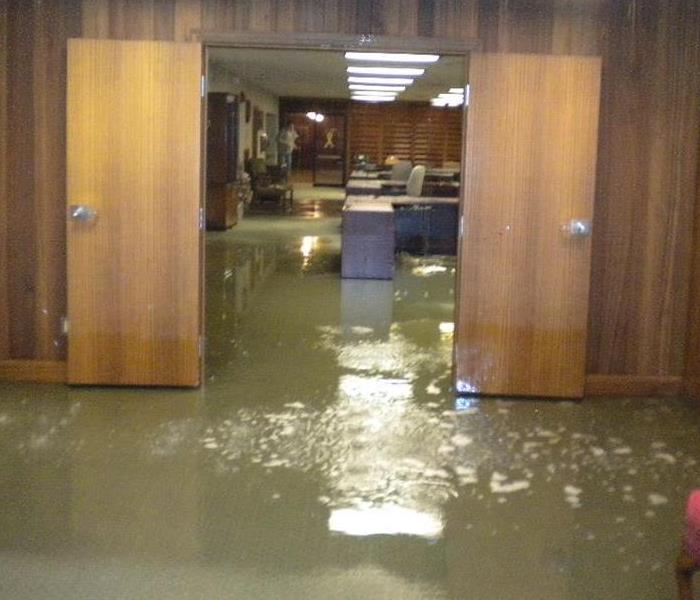 Major flooding at a local large building with multiple businesses
Major flooding at a local large building with multiple businesses
How quickly your company can get back to business after a blizzard, fire, or flood often depends on the emergency planning done today. The regular occurrence of natural disasters demonstrates the importance of being prepared for any emergency. While each situation is unique, your organization can be better prepared if you plan carefully, put emergency procedures in place, and practice for all kinds of emergencies.
The following are basic measures business owners and managers can take to begin preparing. A commitment to begin planning today will help support your employees, customers, the community, local economy, and even the country. It also protects your business investment and gives your company a better chance for survival.
Develop a Business Continuity Plan.
Your organization’s risk needs will vary depending on the specific industry, size, scope and location. Begin by reviewing your business process flow chart, if one exists, to identify operations critical to survival and recovery. Carefully assess your internal and external functions to determine which staff, materials, procedures and equipment are absolutely necessary to keep the business operating. You should also establish procedures for succession of management.
Review Insurance Coverage.
Inadequate insurance coverage can lead to major financial loss if your business is damaged, destroyed or simply interrupted for a period of time. Insurance policies vary; check with your agent or provider about things such as physical losses, flood coverage and business interruption. Understand what your policy does and does not cover.
Prepare your Emergency Plan.
Your employees and co-workers are your business’ most valuable asset. Communication is central before, during and after a disaster. Include emergency information in newsletters, on your company intranet, in periodic employee e-mails and/or other communication tools.
Practice the Emergency Plan.
Some disasters will require employees to leave the workplace quickly. The ability to evacuate workers, customers and visitors effectively can save lives. If your business operates out of more than one location, establish evacuation procedures for each individual building. If your company is in
a high-rise building, an industrial park, or even a small strip mall, it is important to coordinate and practice with other tenants or businesses to avoid confusion and potential gridlock.
Secure Your Facility and Equipment.
Install fire extinguishers, smoke alarms and detectors in appropriate places. Secure all entry and exit points and plan for mail safety. Plan what you will do if your building, plant or store is not usable. Secure valuable equipment.
Improve Cyber Security.
Protecting your data and information systems may require specialized expertise, but even the smallest business can be better prepared. Use anti-virus software and keep it up-to-date. Don’t open e-mails from unknown sources. Use hard-to-guess passwords. Protect your computer from intruders by using firewalls. Back up your computer data and download security protection updates known as patches regularly.
Information provided by ready.gov
How can we help with your smoke damaged home?
2/14/2022 (Permalink)
 This old oil painting was damaged by smoke. On the left is the clean side, the right side has been untouched.
This old oil painting was damaged by smoke. On the left is the clean side, the right side has been untouched.
While many homeowners might find themselves preoccupied with the state of their home after a fire, the other effects that you cannot readily see can be equally problematic. Odors from a fire are often among the hardest to remove, and why it takes specialized equipment and specific training for qualified professionals like ours to eliminate permanently. Smoke odors cannot get concealed with a stronger smell, as it often gets embedded into materials, fabrics, and the air.
Smoke damage can spread quickly throughout your home both during and in the days after a fire. This odor can move far beyond the combustion areas to provide a challenge for homeowners still living in the home to endure. Many fire damage situations are small and localized, but overcoming this noxious odor then becomes a priority for those still exposed to the harsh scent every day.
The smoke from a fire can spread throughout your home through many different avenues. Often the HVAC system plays the most significant role in moving this odor from one location in the house to another, but this also posits residue, soot, and debris inside of the ductwork in between all of these areas. Our experienced SERVPRO technicians have the equipment to effectively remove buildup and sediment from the ductwork to help this system slow its spread of the odor.
Our industry-leading equipment such as our thermal foggers release a dense chemical compound and can help to deodorize open areas of your property and break apart foul odor molecules on contact. This equipment is also safe to use on softer materials and textiles throughout the property, making it an excellent choice to deodorize carpeting, clothing, drapes, furniture, and other structural elements. This, combined with our technicians hand washing walls, ceilings and belongings will help get the lingering odor out of your home.
Overcoming smoke damage in your home is not something that homeowners can do on their own. Our SERVPRO of Jefferson County team has advanced technology to remove smoke and fire odors, along with the residue and damage that they cause quickly. Give us a call anytime that you need us at (315) 777-8377.
Odor removal after a fire can be the hardest part of recovering
2/11/2022 (Permalink)
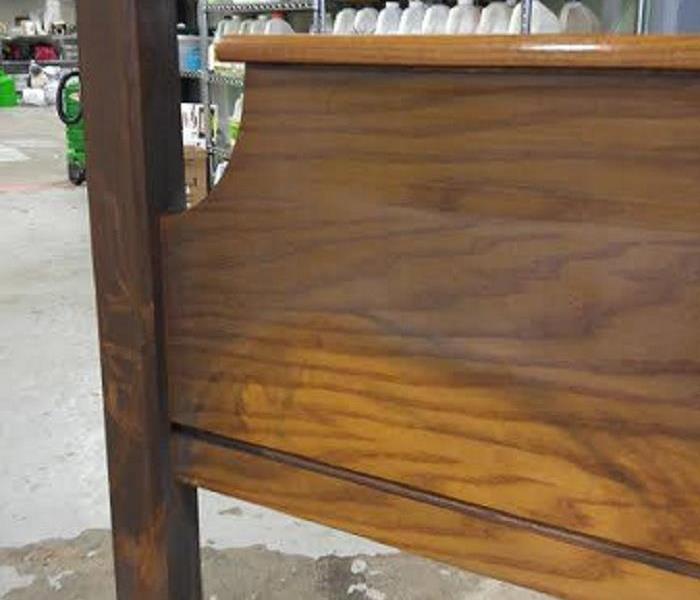 Whether we bring your belongings back to our shop, or clean them in home, we make sure to care for them as if they were our own.
Whether we bring your belongings back to our shop, or clean them in home, we make sure to care for them as if they were our own.
Dealing with a house fire may be one of the worst things you have to go through as a homeowner, so when SERVPRO of Jefferson County has come and gone, it can be like a breath of fresh air. Or is it? Unfortunately, you may notice some residual effects of the fire long after the last technician has packed his or her bags and left your home.
One such effect is a smoke odor. The good news is that cleaning up smoke damage doesn’t have to be difficult, especially when you implement a few tried and true smoke cleaning tips:
• Air out your home.
• Replace the air filter.
• Clean the HVAC system.
• Deep clean your home.
Air Out Your Home
The best thing you can do to reduce the risk of a linger smoke smells or to get rid of embedded odors is to air out your home. Open the windows and doors if it’s nice outside and turn on the fans. If it’s cold outside, you may need to face a fan inwards to force air into a single room with an open window or door.
Replace Your Air System’s Filter
You can deep clean your home as thoroughly as possible, but if you turn on an HVAC system that’s filter is contaminated with soot and odors, all your smoke cleaning efforts will have been for naught. Replacing the filter is a quick, affordable and efficient way to reduce the risk of lingering smoke smells.
Clean Your HVAC System
If you have hard ducting in your home, SERVPRO of Jefferson County can clean your heat ducts. We can also recommend a local professional to come in and clean and service your furnace, and help replace the air filters.
Deep Clean Your Home
SERVPRO of Jefferson County is here to help when it comes to deep cleaning your home after a fire damage. We make sure to remove all of the residual soot from all surfaces in the home. There may be some permanent staining to walls and ceilings which will require them to be re painted. Whether we pack out your home, or clean the items in place, we will clean everything from the carpets to the ceilings and all things in between.
If you have any questions about this process, please feel free to give us a call at 315-777-8377
Plan ahead for severe storm season in Jefferson County
2/11/2022 (Permalink)
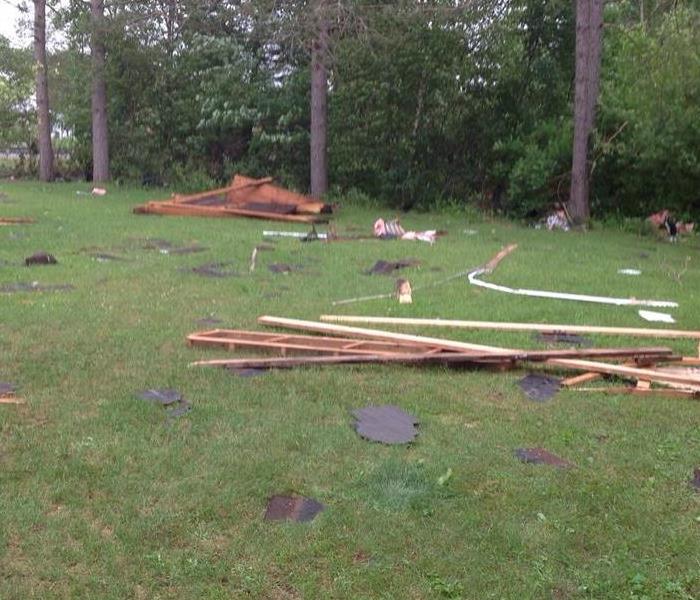 Strong winds can damage roofs, trees, remove siding from houses etc.
Strong winds can damage roofs, trees, remove siding from houses etc.
Every region has its own storm season, and the area around Watertown, NY is no different. While you cannot guard against everything that might happen during a storm, you can develop a few habits that will leave you better prepared to face the next rain storm that hits your commercial property.
Severe Storm Season
When storm season approaches, start thinking about how you are going to keep your business and employees safe. There are several things you can do to prepare:
- Roof inspections to identify weak spots or troublesome debris
- Tree trimming to minimize the chance that branches will be torn off by high winds
- Lightning rod inspection to ensure that they are installed correctly
- Employee training to inform them about emergency procedures
The sooner that you start preparing for the first rain storm of the season, the more likely it is that you can minimize the damage it causes.
Severe Storm Watch
The National Weather Service may issue a severe thunderstorm watch. As soon as this watch is announced, make sure that the people to whom you have designated certain duties, such as shutting down operations, making head counts and alerting emergency services, are aware that their actions may be needed soon. It is also a good idea to send out an email to let everyone know that storms are possible and to remind them of the safety plan.
Severe Storm Warning
Once the severe storm warning has been issued, it is time to put your plan into action. Sound the alarm in your building to let everyone know that they need to head to the designated safety area. This area should be an interior room that is far away from windows and skylights. High winds can cause glass to break, which is a danger to anyone in its path.
If you plan ahead, a severe storm doesn't have to catch you by surprise. With preparation and a solid emergency plan, you can weather storm season and its effects on your building.
Give us a call at 315-777-8377 with any questions about preparing for storm season.
What is secondary damage?
2/11/2022 (Permalink)
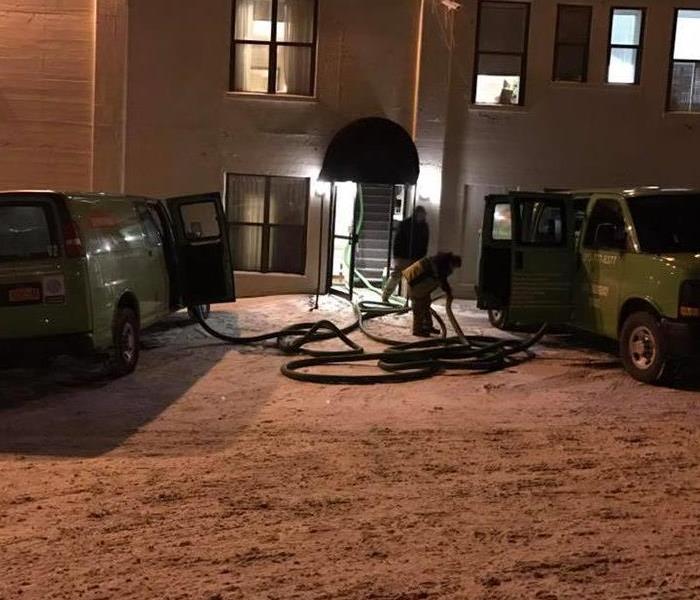 We are ready to help you no matter the weather
We are ready to help you no matter the weather
Determining whether damage is primary or secondary can pose a challenge. In a commercial property with water damage, primary damage is only caused by exposure to water, while secondary may range from mold to other issues caused by water or high humidity. Here are five types of secondary damage.
1. Corrosion: Many parts of a commercial property, from building materials to fixtures, are made out of metal. Corrosion can affect HVAC components, pipes, or studs. Over time, corrosion may lead to costly structural or utility repairs.
2. Rot: Organic materials such as wood may rot as a result of water damage. Limit the extent of this damage with thorough drying and dehumidification. Rotted building materials may undermine structural integrity.
3. Mold: Mold is a common result of water damage that can start to develop within 48 hours of water damage. There are many types, all of which result from damage that is not addressed in a timely manner. Prevent mold by quickly removing all standing water and thoroughly drying areas affected by water damage.
4. Electrical problems: Water can damage every essential system in a commercial property. Water in electrical sockets or other components can undermine the power in the property or cause dangerous malfunctions. Commercial restoration experts can help to ensure that the lights are safe to turn on and restore water-damaged appliances and devices.
5. Damaged materials: The line between damage from primary and secondary causes can be vague. Water damage that goes untreated may cause more extensive damage to materials that is secondary. These contents may need to be replaced.
If your commercial property in Jefferson, Lewis or St Lawrence County has experienced water damage, you should immediately take action to limit the extent of secondary damage. Call SERVPRO of Jefferson County if you have any questions at 315-777-8377.
Commercial mold remediation
2/11/2022 (Permalink)
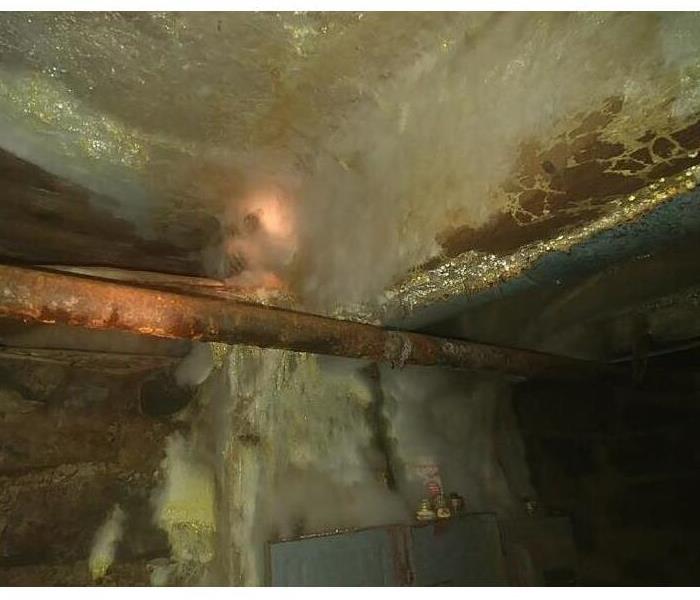 Mold can be found just about anywhere. There is a massive amount of mold growth in this basement.
Mold can be found just about anywhere. There is a massive amount of mold growth in this basement.
By the time you smell the distinctive musty odor, you have lost half the battle. Water damage or moisture has sparked the growth of mold in your commercial building and left unchecked, the insidious fungus can do massive damage. Clearly, immediate steps must be taken to secure the property. The only question now is what sort of guidelines or mold standards for cleanup should you follow in Watertown, NY?
Make a Plan
There are no federal rules that a commercial property owner must adhere to when it comes to mold clean up, but the EPA provided broad guidelines in the 2008 brochure Mold Remediation in Schools and Commercial Buildings. First and foremost, it is important to assess the scale of the issue and form a remediation plan. Any strategy for cleanup and repair should follow these principles:
• Identify and fix the water or humidity issue.
• Communicate with employees and/or other building occupants.
• Clean up mold and dry all water-damaged areas.
• Select appropriate cleaning and drying methods and tools.
• Remove mold-damaged building materials.
• Arrange for professional help, as needed, from restoration specialists
If professional help is required, it is important to hire a firm and/or technician accredited by the Institute of Inspection, Cleaning and Restoration Certification. The IICRC’s own mold standards require a written assessment and detailed action plan. All black mold must be eradicated by use of EPA-approved fungicides.
Follow the Plan
The EPA brochure also provides tips for preferred cleanup methods and removal and disposal of affected building materials. Pages of guidelines for such are included, along with a simple checklist to determine if the remediation plan has been a success:
• Has the instigating water/moisture issue been addressed and repaired?
• Have all materials affected by mold been thoroughly cleaned of the fungus and/or removed and replaced?
• Does the site visually appear mold-free with no signs of water damage?
If the answer to each of these questions is “yes,” the remediation plan meets the mold standards recommended by EPA and IICRC guidelines.
In New York State, we are required to carry a mold remediation license. We make sure to keep our license up to date, and complete the latest training to help you out when an issue arises!
For more information, visit http://www.SERVPROjeffersoncounty.com/.
Ways to protect your plumbing during the winter
2/11/2022 (Permalink)
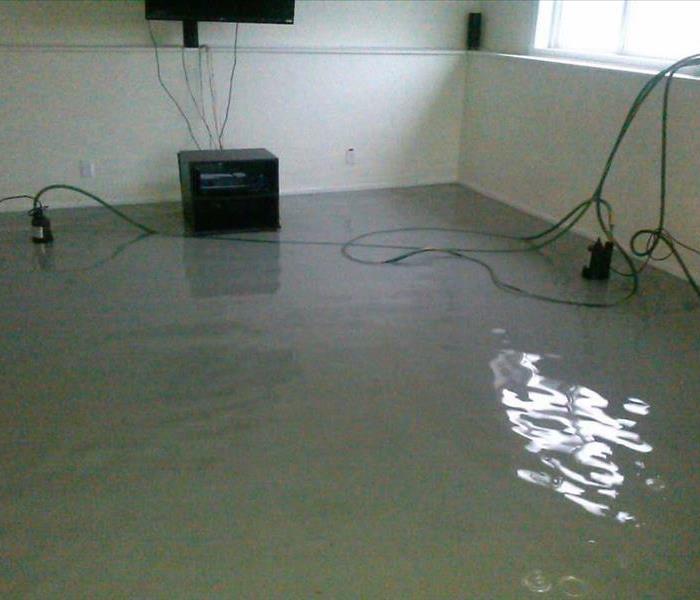 Water can collect in many places depending on how your home is built. This bedroom almost turned into a swimming pool!
Water can collect in many places depending on how your home is built. This bedroom almost turned into a swimming pool!
Protecting Plumbing While You Are Away from Watertown for the Winter
The winter and even early spring can bring about severe temperature drops. Remaining mindful of the effects of freezing temperatures can help to protect your home and its belongings from substantial damage when pipes that get exposed burst. Worse than this, many homeowners are far away from their properties during the long winter months, leaving them unaware of damages that could occur when at risk plumbing components dam up, build pressure, and disconnect or burst.
While no one wants to pay someone to periodically monitor their property for any sign of danger, there are ways that you can keep your Watertown property from widespread water damages while you are away from your home for the season. Neighbors and relatives can check on your house at regular intervals to ensure that they do not notice anything out of place. Your municipality can also help you by shutting off your water to the house while you are away, allowing you to drain the lines and prevent the possibility of plumbing damages.
If water damage does get discovered at this time, it does not mean that your time away in likely warmer weather has to come to a halt. Our SERVPRO professionals are available 24 hours a day to offer effective mitigation and restoration solutions for customers in our area. Even without you being at home, upon formal agreement, we can get to work quickly on restoring your home and could have it back to its original condition before you even return from your extended travels to warmer climates for the winter months.
Our SERVPRO trained technicians utilize state-of-the-art equipment to monitor moisture levels in wall cavities, flooring, and in ceilings that are hidden from view. We employ FLIR camera thermal imaging, moisture meters, and sensors for this purpose. This identification helps to direct our fast-drying equipment like heated air movers and dehumidifiers to prevent the need for demolition. Our goal is always to preserve and restore, and not remove and replace.
Disasters can happen at any time, even when you are miles and miles away from home. We are available 24/7 by calling (315) 777-8377.
Jefferson County renters should have renters insurance
2/10/2022 (Permalink)
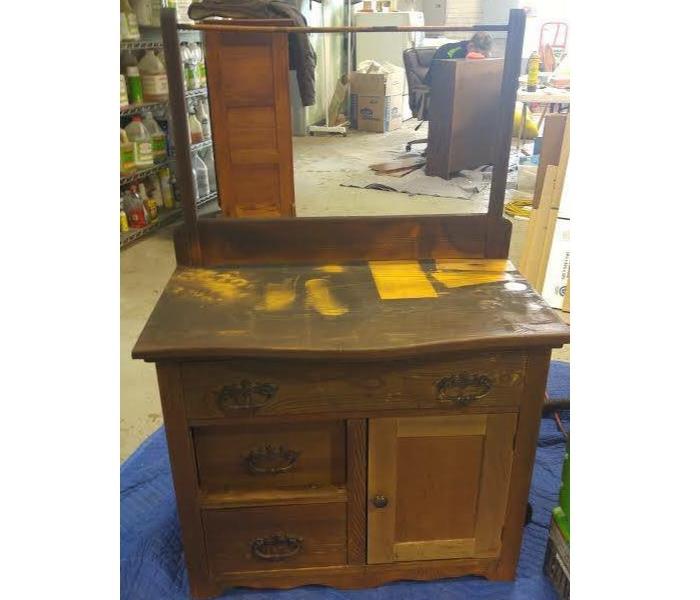 Cleaning furniture and belongings can be a daunting task. It's time consuming and meticulous but we love doing it!
Cleaning furniture and belongings can be a daunting task. It's time consuming and meticulous but we love doing it!
Are you currently renting an apartment or home in the Tri-County area? Do you have renters insurance?
Many apartment complexes and landlords do not require renters insurance. It's absolutely vital to have renters insurance in place to cover the loss of your belongings should you experience a water or fire damage. Without insurance you will be faced with the daunting task of replacing your household goods, or having them restored out of pocket.
Renters insurance is really quite inexpensive when you think about how much it actually covers. It can often be bundled with your auto insurance for extra savings.
While we try to help in any situation where a renter unfortunately does not have insurance, we are limited to the services we can provide at that time.
Call one of your local insurance agents today for a quote!
Generator safety is essential in an emergency
2/10/2022 (Permalink)
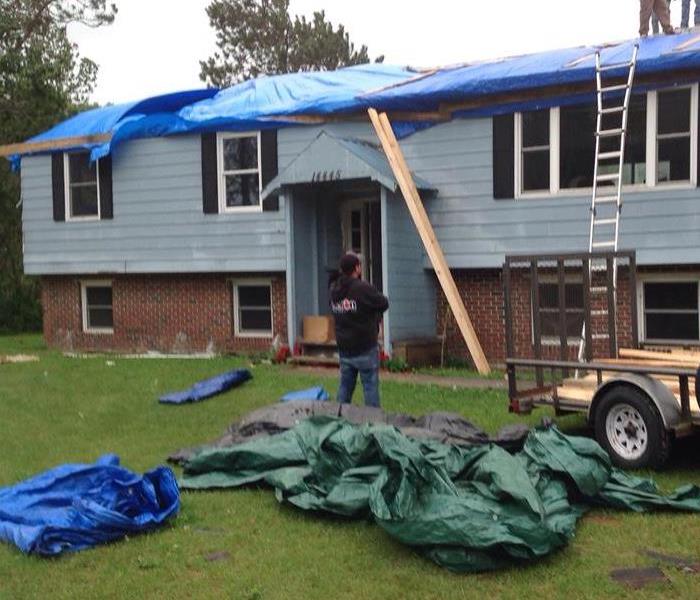 Storm damage can be caused by wind, rain, ice, trees falling etc.
Storm damage can be caused by wind, rain, ice, trees falling etc.
If you have a generator on hand for power outages during severe weather storms, follow the safety tips below from the American Red Cross:
1- Never use a generator, grill or camp stove, or other gasoline, propane, natural gas, or charcoal-burning devices inside a home, garage, basement, crawl space, or any partially enclosed area.
2- To avoid electrocution, keep the generator dry and do not use in rain or wet conditions. Do not touch the generator with wet hands.
3- Opening doors or windows and using fans will not prevent carbon monoxide (CO) buildup in the home. Although CO can’t be seen or smelled, it can rapidly lead to full incapacitation and death.
4- Even if you cannot smell exhaust fumes, you may still be exposed to CO. If you start to feel sick, dizzy, or weak while using a generator, get to fresh air immediately.
5- Install CO alarms in central locations on every level of your home or property and outside sleeping areas to provide early warning of accumulating carbon monoxide.
If your home or business suffers from any type of storm damage, call SERVPRO of Jefferson County at 315-777-8377 and we will send a professional out to assist with getting your property back to its original state as soon as possible!
Take steps to protect your Jefferson County business from fire
2/10/2022 (Permalink)
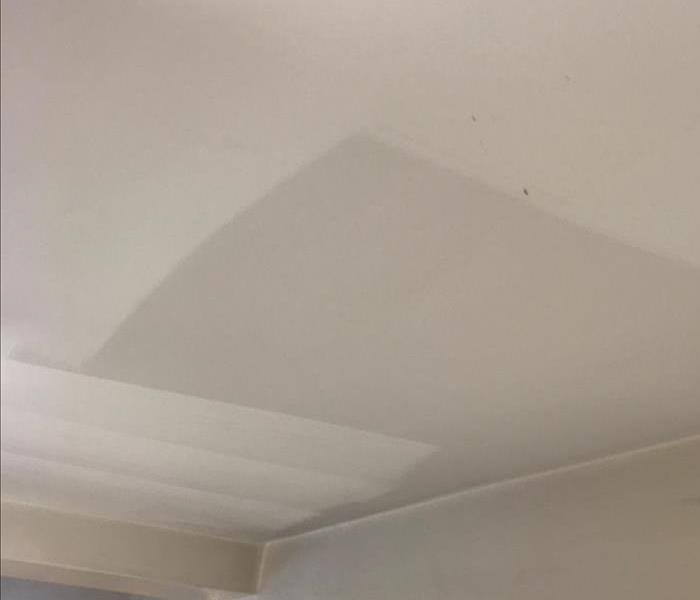 Even light soot should be cleaned up by professionals. It can get into every nook and cranny in your business. If it's there, we will find it!
Even light soot should be cleaned up by professionals. It can get into every nook and cranny in your business. If it's there, we will find it!
The best way to avoid this scenario is to take steps to reduce the likelihood that a preventable fire will break out. You may also want to train employees or occupants in disaster preparation to limit losses from fires that start in other units or surrounding buildings. Here are four fire preparation steps you can take to protect your business.
1. Make sure the property is built with fire-retardant materials. The materials out of which a commercial property is built can impact insurance premiums. These materials may also impact the way that fire suppression systems are set up. You should also factor in whether structural additions or contents are potentially combustible or resistant to fire.
2. Frequently perform fire drills and train occupants on fire safety. Make sure that all employees and occupants of the building know what to do in case of fire, and post evacuation maps in strategic locations. You may also want to schedule fire preparation training that covers how and when to use fire extinguishers.
3. Regularly test extinguishers and fire suppression systems. Install fire extinguishers in accordance with all applicable laws and regulations and have them regularly inspected. The supplier of the fire suppression equipment in your building can recommend a testing method.
4. Schedule a fire hazard analysis. A commercial property can become imperiled by fires that start in other units or neighboring buildings. Have a trained professional perform a fire hazard analysis to further reduce the likelihood that your building will sustain extensive damage.
Taking these four fire preparation steps should reduce the likelihood that a fire will start in your business. If a fire does start and damages your commercial property in Jefferson, St Lawrence or Lewis county, you should carefully document evidence of damage and loss and contact SERVPRO of Jefferson County at 315-777-8377.






 24/7 Emergency Service
24/7 Emergency Service









